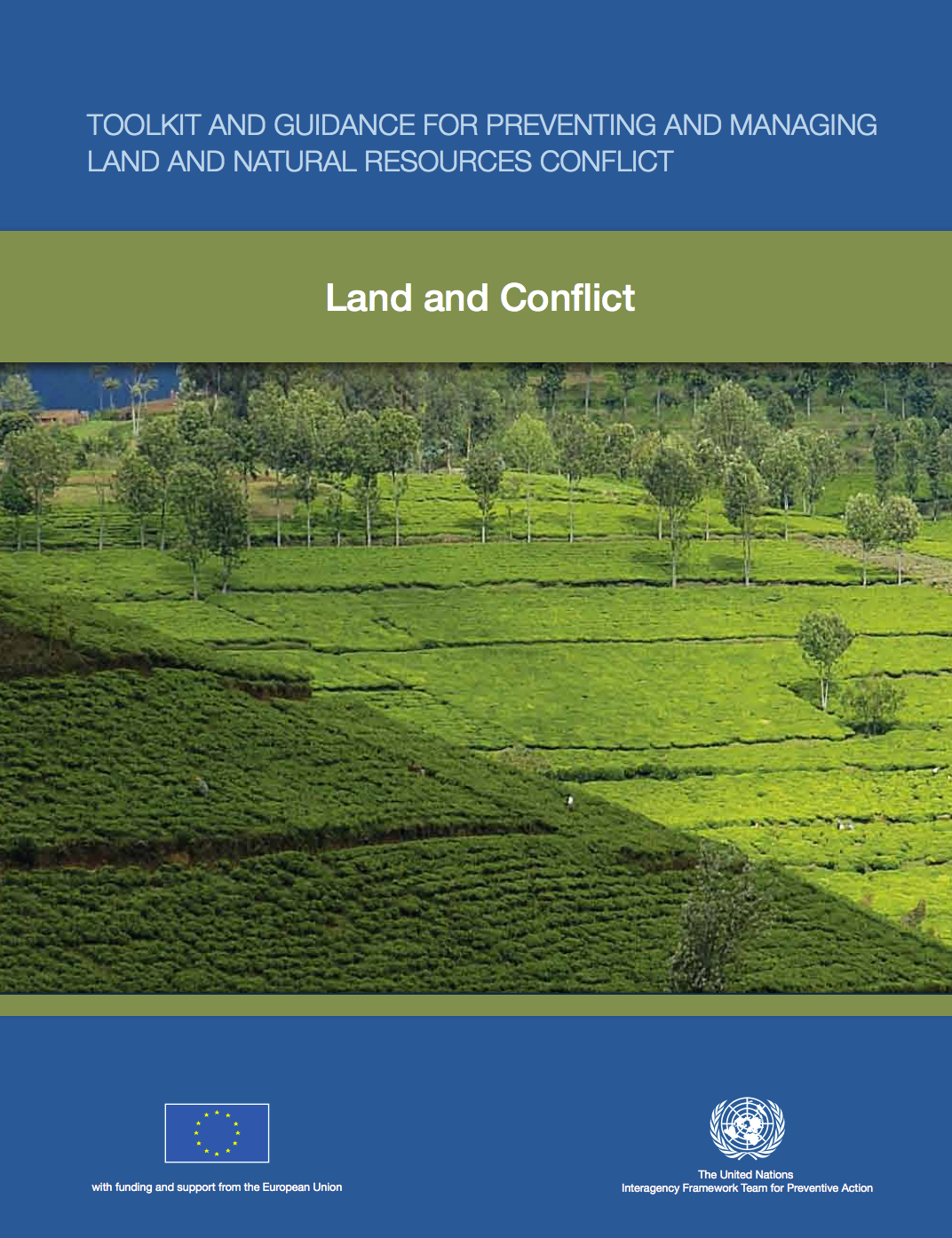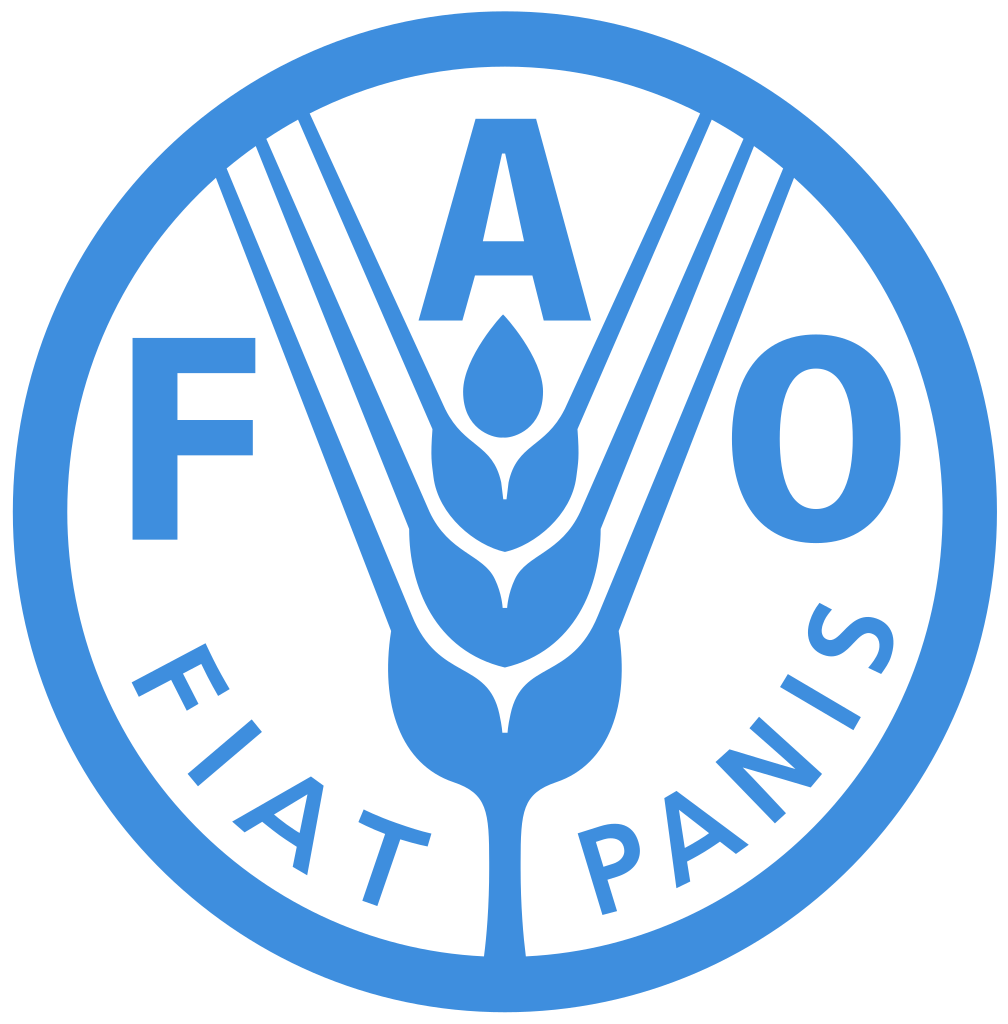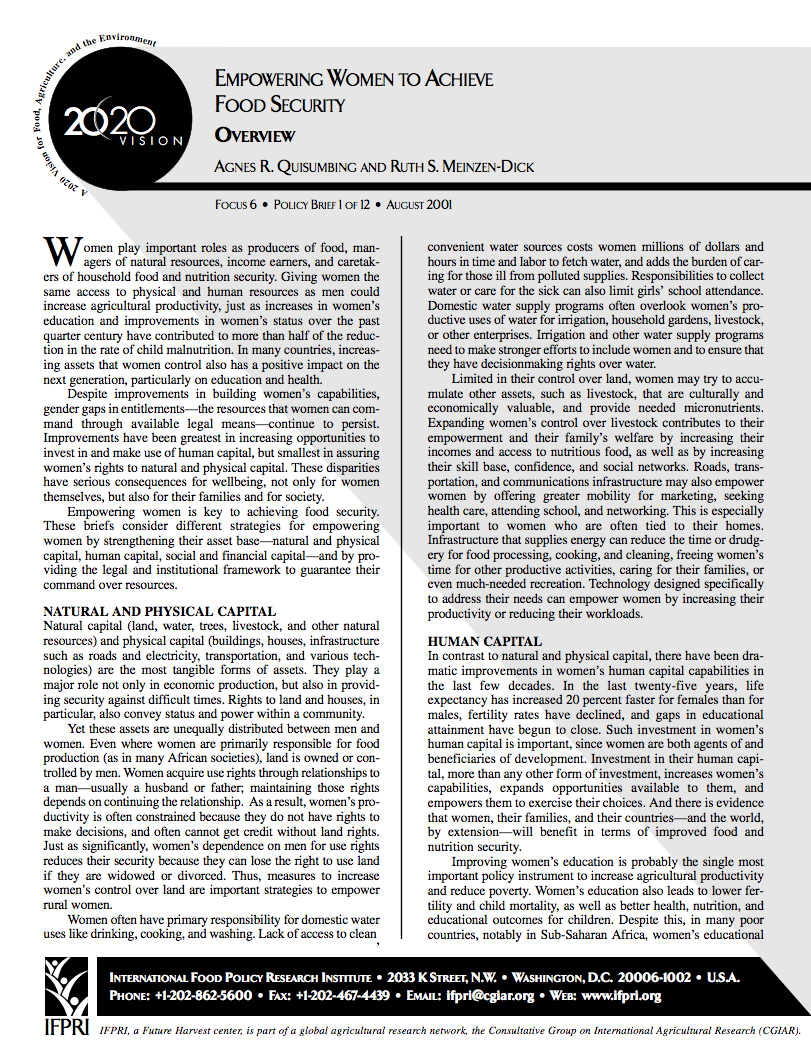FONTIERRAS : structural adjustment and access to land in Guatemala; an analysis and future perspectives, executive summary
Library has Spanish version: FONTIERRAS : el modelo de mercado y el acceso a la tierra en Guatemala; balance y perspectivas, resumen ejecutivo
Improving access to natural resources for the rural poor - The experience of FAO and of other key organizations from a sustainable livelihoods perspective
This report identifies FAO’s activities concerning access to natural resources (ANR), and identifies other organizations that use explicitly or implicitly a sustainable livelihoods approach in relation to ANR. The report constitutes Output 2.1 of the work plan of the FAO LSP Sub-programme 3.1 ("Building Stakeholder capacity to improve access to natural resources for the rural poor").
Toolkit and Guidance for Preventing and managing Land and Natural Resources Conflict - Land and Conflcit
This guidance note provides a framework for understanding and addressing land and natural resource-related grievances and conflicts through a holistic, systematic approach. While the main emphasis is on violent conflict, it may also be useful in a variety of other situations characterized by significant land-related grievances, but which are not currently or openly violent. It is intended for staff of multilateral organisations, national and local governments, and civil society organisations.
The Art of Building Training Capacities in Community Forestry Development
To improve natural resource management on a larger scale, trainings must create a lasting impact on participants' lives and work. With 30 years of experience delivering trainings in the Asia-Pacific region, RECOFTC has found the best way to improve the effectiveness of trainings is to use a more participatory and interactive approach. Building on trainers' existing skills and knowledge, this training manual offers methods for teaching and building capacities in natural resource management, especially "learning by doing".
This training manual will help enable trainers to:
Tenure, diversity, and commitment: community participation for urban service provision
This paper examines factors influencing a household’s willingness to participate in community based service provision programs. Using data from a recently completed geo-referenced household survey for Bangalore, India, two important hypotheses on why households engage in collective action are tested: does tenure security enhance the probability of participation mainly because the resulting appreciation in housing values can be capitalised and the anticipated benefit stream from service provision is accrued over a longer period?
Democracy and deforestation. The politics of protecting the forests
How can the process of tropical deforestation be controlled? We now know a good deal about the causes of deforestation but not its control. Research from the University of Leeds in Thailand and the Philippines fills this gap, showing that changes in the domestic political scene explain how deforestation processes have been controlled in the two countries. Environmental constraints and increases in agricultural productivity can curb the demand for farmland to some extent.
The Art of Building Facilitation Capacities
This manual is designed for trainers and facilitators who have an interest in improving the facilitations skills of field workers in the context of community forestry development. It is designed as part of a facilitation training package supported by a training video that helps the trainer bring real life scenes from the field into the classroom alongside the sessions suggested in the manual. However, experience and feedback has illustrated the sessions are equally useful for developing the facilitation of skills of managers or fields workers in other development sectors.
Land conflict resolution: case studies in the Philippines
This article summarizes the nature of land-related conflicts in the Philippines within the context of the prevailing agrarian situation throughout the country. An analysis of the agrarian institutions and different types of development that have occurred in a number of regions provide a broad representation of the current situation.
Report of a Workshop on Mainstreaming Grassroots Consultations into the National Land Policy and PRSP
Includes objectives, programme, welcome message, official opening, hopes and fears, introduction to LandNet, presentations, group work on land rights, redistribution, decentralisation, and the role of civil society, key issues, closing. The workshop endeavoured to publicise the findings of grassroots consultations on land carried out by LandNet members in order that these be incorporated into the forthcoming National Land Policy and the PRSP. Among the issues raised were insecurity and inequitable distribution and the ways in which land disputes are currently handled.
Empowering women to achieve food security
Women play important roles as producers of food, managers of natural resources, income earners, and caretakers of household food and nutrition security. Giving women the same access to physical and human resources as men could increase agricultural productivity, just as increases in women’s education and improvements in women’s status over the past quarter century have contributed to more than half of the reduction in the rate of child malnutrition.
LandNet West Africa: Progress, Achievements and Visions for the Future
Contains introduction, progress and impacts since Addis Ababa, vision of LandNet West Africa, principles of operation, expected impacts, activities at sub-regional level.









